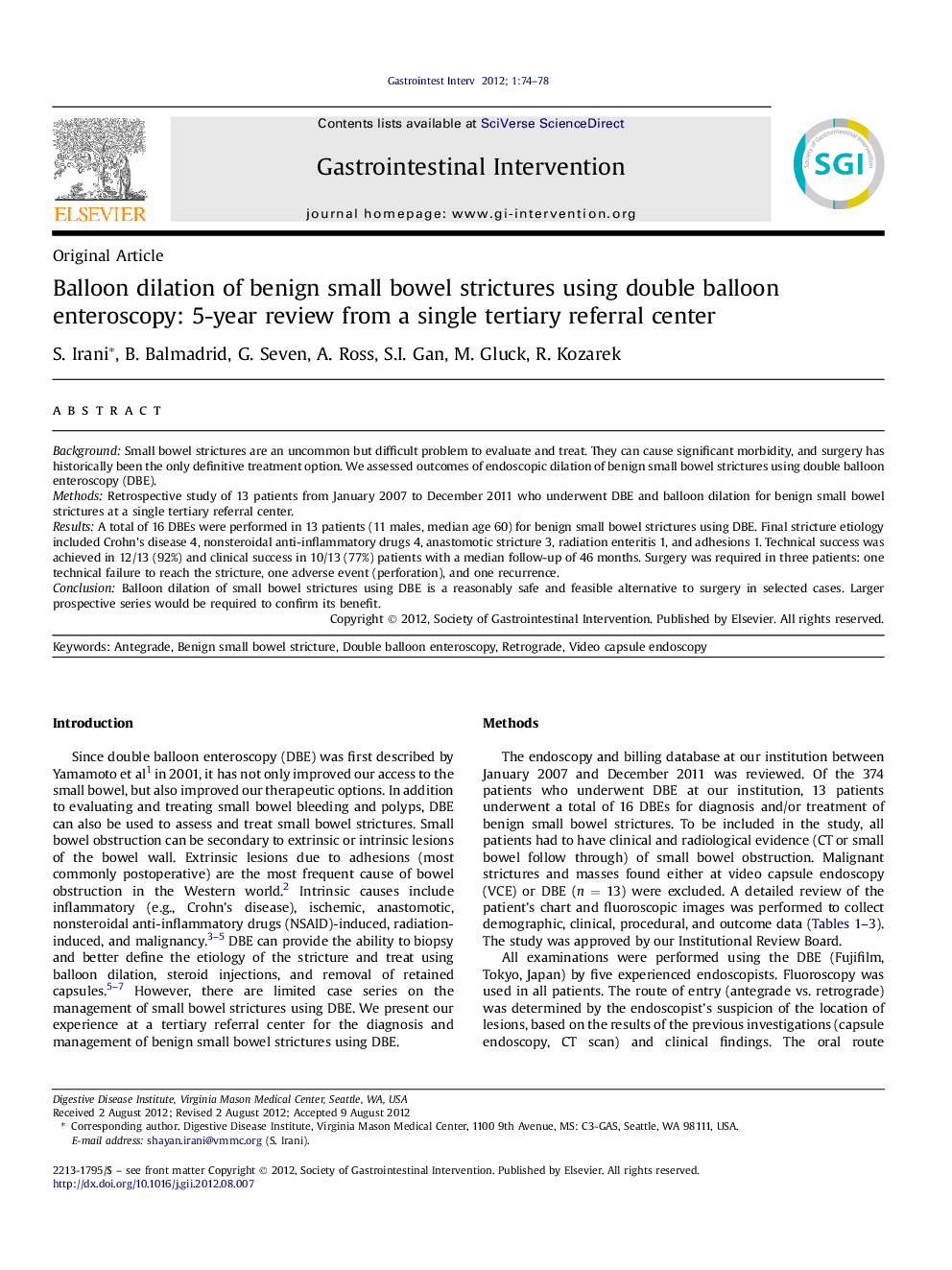| Article ID | Journal | Published Year | Pages | File Type |
|---|---|---|---|---|
| 3310993 | Gastrointestinal Intervention | 2012 | 5 Pages |
BackgroundSmall bowel strictures are an uncommon but difficult problem to evaluate and treat. They can cause significant morbidity, and surgery has historically been the only definitive treatment option. We assessed outcomes of endoscopic dilation of benign small bowel strictures using double balloon enteroscopy (DBE).MethodsRetrospective study of 13 patients from January 2007 to December 2011 who underwent DBE and balloon dilation for benign small bowel strictures at a single tertiary referral center.ResultsA total of 16 DBEs were performed in 13 patients (11 males, median age 60) for benign small bowel strictures using DBE. Final stricture etiology included Crohn's disease 4, nonsteroidal anti-inflammatory drugs 4, anastomotic stricture 3, radiation enteritis 1, and adhesions 1. Technical success was achieved in 12/13 (92%) and clinical success in 10/13 (77%) patients with a median follow-up of 46 months. Surgery was required in three patients: one technical failure to reach the stricture, one adverse event (perforation), and one recurrence.ConclusionBalloon dilation of small bowel strictures using DBE is a reasonably safe and feasible alternative to surgery in selected cases. Larger prospective series would be required to confirm its benefit.
